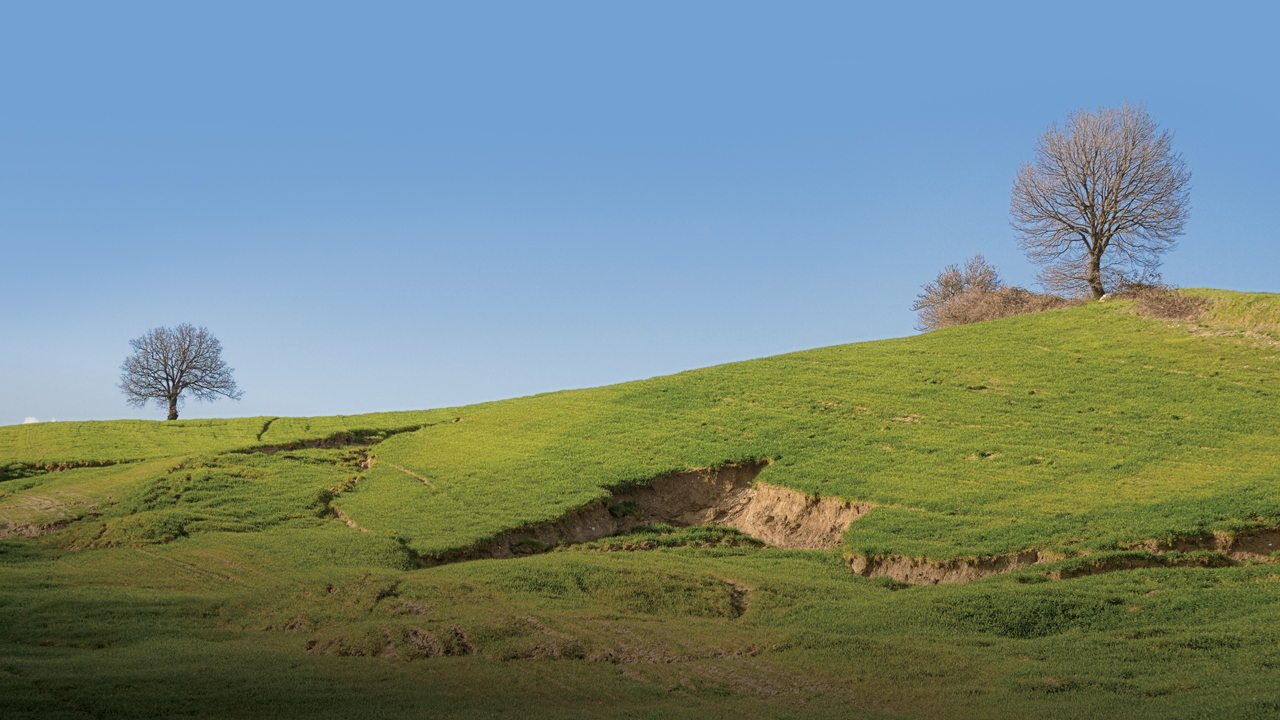Preventing Soil Piping and Landslides
Assistant professor Jack Montgomery plans to evaluate the relationship between soil piping and landslides with a National Science Foundation CAREER award.
By Jeremy Henderson

Assistant Civil and Environmental Engineering Professor Jack Montgomery was recently selected for the prestigious National Science Foundation Faculty Early Career Development (CAREER) program.
Montgomery, whose focus is geotechnical engineering, was awarded $531,818 to explore the relationship between soil piping and rainfall-induced landslides in unsaturated soils.
“This award lets me expand my research and teaching into new areas,” Montgomery said. “This project is specifically focused on piping in slopes, but the findings will apply to many different areas, including dam safety.”
Much of Montgomery’s previous research has focused on field work or computational analyses.
“But this grant will allow me to build some really unique experimental capabilities at Auburn,” he said.
Specifically, he plans to take advantage of the 4,700-cubic-foot geotechnical test chamber — one of the few test chambers in the nation included in a university laboratory — inside Auburn’s new $22 million Advanced Structural Engineering Laboratory.
“We’ll be using the geotechnical test chamber to build some near full-scale slope models,” he said.
The award also involves integrating Montgomery’s research into an outreach program geared toward increasing interest and retention among traditionally underrepresented students in civil engineering.
Montgomery, who came to Auburn in 2015, is the fifth Auburn Engineering faculty member — and the third in the Department of Civil and Environmental Engineering — to earn the Early CAREER Award in a 16-month period, a fact that Andy Nowak, chair of the Department of Civil and Environmental Engineering, feels reflects the college’s commitment to hiring and retaining the best engineering minds in the country.
“Jack has already received plenty of professional accolades,” Nowak said. “But it’s always rewarding when the NSF recognizes the same promise in a researcher that you saw in them.”

